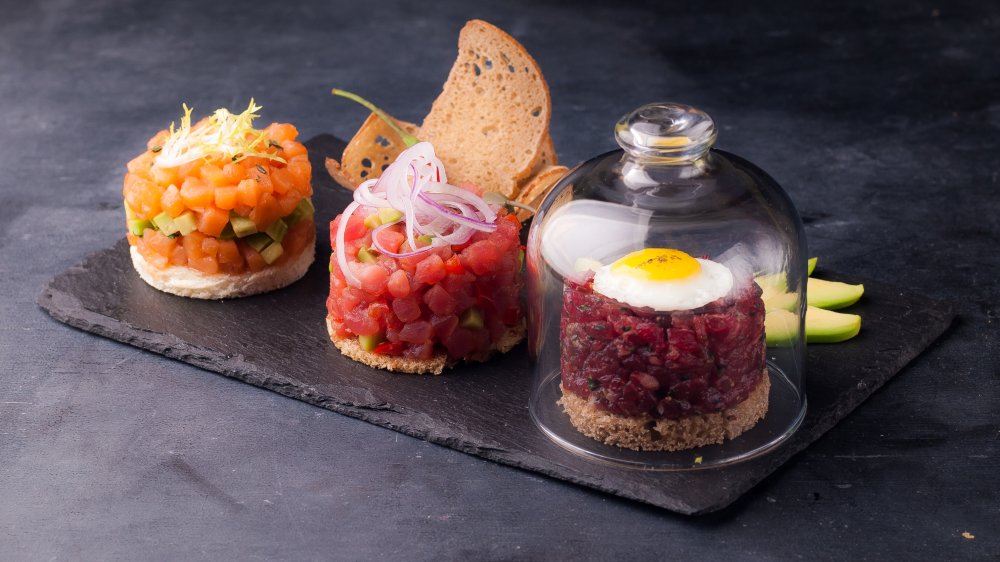Food Safety Expert Reveals The Number One Food To Avoid In Restaurants
We may receive a commission on purchases made from links.
Dining out is always an adventure. Clever chefs experiment with spices and flavors you never would have thought to combine, drawing off some interesting food trends, whether it's mixing cannabis in your cocktail or infusing your ice cream with pickle juice. Of course, there's also the thrill of trying out cuisines from around the world. Without straying too far from your home — or leaving it at all, if you do takeout — you can explore the flavors of Paris, Rome, Bangkok, Tokyo or Tijuana.
One place you certainly don't want to travel, though, is the emergency room. Food poisoning is twice as likely to happen when you dine at a restaurant versus cooking at home (via WebMD). According to the Centers for Disease Control and Prevention, 1 in 6 Americans get sick to their stomachs from pathogens including salmonella and e. Coli, resulting in 128,000 hospital visits per year.
If you'd rather conclude your restaurant experience with an aperitif than some ER jello, there is one menu item you should never, ever order. In an exclusive interview with Mashed, food safety expert Toby Amidor, who is the author of the Wall Street Journal best-selling cookbook, The Best Rotisserie Chicken Cookbook, said you should never order tartare.
If you order tartare, you're ordering raw meat that lots of people have touched
Most commonly known as a steak delicacy, but can also be made with salmon and other fish, tartare is a high-end offering, not unlike caviar, that you'll mainly find at reputable restaurants that are likely following all safety precautions (per Newsweek). So why does Amidor take such a harsh stance on tartare?
"Tartare is raw, ground up fish or meat. Bacteria and other pathogenic microorganisms are able to thrive on raw meat," Amidor explained. If you've ever eaten sushi or sashimi and lived to tell the tale, though, perhaps you're willing to muster up the courage to give tartare a try? Stop right there. Amidor says it's not just the rawness of the meat or fish you have to worry about with tartare. "Although the food service establishment does need to have a food safety plan in place for this type of food, this dish goes through more processing that can potentially contaminate it," she explained.
Amidor explained that what makes tartare unique is how much human touch is involved in its preparation: "With the grounding and more handling from humans, it's certainly a dish that I recommend avoiding at restaurants," she said.

